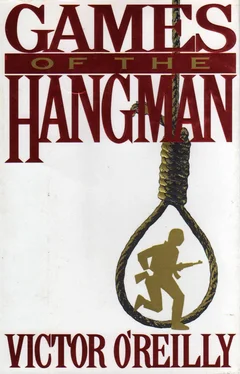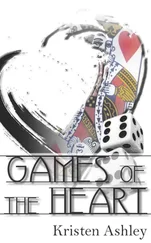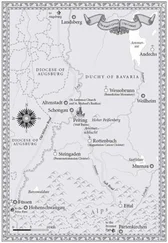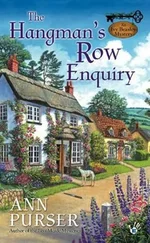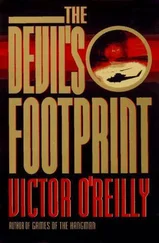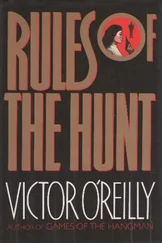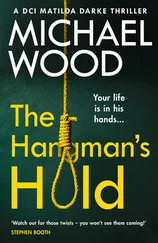Victor O'Reilly - Games of The Hangman
Здесь есть возможность читать онлайн «Victor O'Reilly - Games of The Hangman» весь текст электронной книги совершенно бесплатно (целиком полную версию без сокращений). В некоторых случаях можно слушать аудио, скачать через торрент в формате fb2 и присутствует краткое содержание. Жанр: Триллер, на английском языке. Описание произведения, (предисловие) а так же отзывы посетителей доступны на портале библиотеки ЛибКат.
- Название:Games of The Hangman
- Автор:
- Жанр:
- Год:неизвестен
- ISBN:нет данных
- Рейтинг книги:4 / 5. Голосов: 1
-
Избранное:Добавить в избранное
- Отзывы:
-
Ваша оценка:
- 80
- 1
- 2
- 3
- 4
- 5
Games of The Hangman: краткое содержание, описание и аннотация
Предлагаем к чтению аннотацию, описание, краткое содержание или предисловие (зависит от того, что написал сам автор книги «Games of The Hangman»). Если вы не нашли необходимую информацию о книге — напишите в комментариях, мы постараемся отыскать её.
Games of The Hangman — читать онлайн бесплатно полную книгу (весь текст) целиком
Ниже представлен текст книги, разбитый по страницам. Система сохранения места последней прочитанной страницы, позволяет с удобством читать онлайн бесплатно книгу «Games of The Hangman», без необходимости каждый раз заново искать на чём Вы остановились. Поставьте закладку, и сможете в любой момент перейти на страницу, на которой закончили чтение.
Интервал:
Закладка:
Games of The Hangman
Victor O' Reilly
"From the ancient times, most samurai have been of eccentric spirit, strong willed and courageous."
- Yukio Mishima, Hagakure"Plumb hell or heaven, what's the difference? Plumb the unknown, to find out something new."
- Charles BaudelairePrologue
FITZDUANE'S ISLAND OFF THE WEST OF IRELAND – 1981
When he was told he was to hang, Rudi had turned pale and swayed on his feet.
Later he was more composed, and it was clear to the others that he had accepted the inevitability of what was to come. He was given no choice. Either he would accept the verdict and do what was necessary or he would be killed painfully – and so would Vreni and other members of his family. It was one life or several, and either way he would die. There was only one decision he could make. He was told that his hanging would be quick and painless.
He had reached a point where he couldn't take it anymore, where what they were doing and what they planned to do – however valid the reasons – were suddenly abhorrent. He could no longer continue. Physically his body rebelled, and he felt ill and nauseated. His mind was a morass of terrible images and memories, and hope and belief were dead. He had been warned when he joined that he could never leave alive.
He thought of fleeing or going to the authorities or fighting back in some way, but he knew – knew with absolute certainty – that they meant what they said and would do what they had threatened. It must be his life, or Vreni and Marta and Andreas would die.
In many ways he welcomed the prospect of death. Guilt engulfed him and he could see no way out. He knew he would not be forgiven for what he had done already; he could not forgive himself.
The arrangements were made by the others. He had been told where to go and what to do. The rope was already in place when he reached the old oak tree. It was thin and blue and of a type used daily around Draker for myriad tasks. It was hard to believe this mundane object would end his life. He had been told that precise calculations had been made to ensure that his death would be instantaneous.
Four of the others stood around the tree watching and waiting but making no motion to help. He must do this alone.
He climbed the tree with some difficulty because the bark was wet and slippery from recent rain. He stepped out onto the branch and slipped the noose around his neck. He nearly slipped and used the hanging rope to steady himself. His hands were shaking and his skin felt clammy.
He could see two of the watchers below him. A wave of despair and loneliness swept over him and he longed to see some friendly face. In seconds he would be dead. Nobody would truly care. Nobody would ever know the real reasons why. The man in Bern was hanging him as surely as if he had been physically present instead of fifteen hundred kilometers away from this miserable dripping forest.
Rudi suddenly thought of his father and the time when the family had all been happy together. Rudi could see him, and he was smiling. It was the way it used to be. He stepped off the branch toward him.
It wasn't over in seconds. The man in Bern had been explicit: it wasn't meant to be. It took Rudi some considerable time to die.
The watchers – appalled and excited and stimulated – waited until the spasming and jerking and sounds of choking had ceased, and then they left.
It was a small thing compared with what was to come.
Book One
The Hanging
"Irish? In truth, I would not want to be anything else. It is a state of mind as well as an actual country. It is being at odds with other nationalities, having a quite different philosophy about pleasure, about punishment, about life, and about death…"
- Edna O'Brien, Mother Ireland1
Fitzduane slept uneasily that night but awoke with no conscious premonition that anything was wrong. It was raining when he climbed out onto the fighting platform of the castle keep and looked across the battlements to the dawn. He reflected that rain was something anyone brought up in Ireland had plenty of time to get used to.
More than seven hundred years earlier the first Fitzduane had stood in much the same spot for much the same reason. Inclement weather or not, the view from the castle keep brought satisfaction, even in the grim, dull month of February. The land they saw was theirs, and the Fitzduanes, whatever their personal idiosyncrasies, shared a ‘what I have I hold’ mentality.
The rain stopped, and the sky lightened.
The castle stood on a rocky bluff, and from his vantage point Fitzduane could see much of the island. It just qualified as an island, a windswept finer of bog, heather, low hills, and rough pasture jutting out into the Atlantic and separated from the mainland by a mere twenty meters. A bridge set well into the overhanging cliff tops spanned the divide.
Farther inland was a freshwater lake by whose edge stood a small white thatched cottage. A trickle of smoke emerged from its chimney. Inside, Murrough and his wife, Oona, the couple who looked after the castle and its lands, would be having breakfast. Murrough had been Fitzduane's sergeant in the Congo nearly twenty years earlier.
The Atlantic crashed and spumed against the rocks that formed the seaward base of the castle. Fitzduane savored the familiar sound. He huddled deeper into his heavy waterproof as the gusting wind, even at this height, blew salt spray into his face.
He glanced at his watch. Half past eight. Time to go. He closed the roof door behind him and descended the circular staircase with some care. The stone steps were worn by centuries of use, and it was five flights to the storeroom and the armory below. The old names for the rooms were still used. Although sides of salt-cured bacon no longer hung from the blackened hooks of the storeroom ceiling, any self-respecting Norman knight would still have been impressed by the reserves of weaponry that were on display in the armory. If the same knight had been familiar with firearms and the materiel of modern warfare, he would have been dazzled by the collection of rifles, pistols, and automatic weapons concealed in the deeper recesses of the castle. Illegal though it was under current Irish law, Fitzduane maintained the family tradition of collecting weapons of war.
In its original from the castle had been a rectangular tower of five floors topped by the fighting platform, with the entrance, accessible only by ladder, on the second story. Over the centuries the castle had been adapted, strengthened, and modernized. A three-story slate-roofed extension now nestled up to the original rectangular keep. Stone steps replaced the ladder. A curtain wall surrounded the bawn, as the castle courtyard is known in Ireland, and stables and outhouses had been built inside the enclosed perimeter. A network of concealed tunnels and storerooms had been added in the sixteenth century.
The entrance, always the weakest part of a castle, was through a small two-story tower, known as the gatehouse, or barbican, set into the curtain wall. The floor of the protruding upper story was pierced with openings – murder holes – from which missiles and boiling water could be dropped upon attackers.
The original iron portcullis, the heavy spiked gridiron gate that could be dropped into place at a second's notice like a guillotine, had long since rusted away, but it had been replaced during the Napoleonic Wars. It now hung, its windlass oiled and in working order, awaiting an attack that would never come. Externally the castle was guarded by the sea and the cliffs on two sides, and a deep ditch secured the rest.
Читать дальшеИнтервал:
Закладка:
Похожие книги на «Games of The Hangman»
Представляем Вашему вниманию похожие книги на «Games of The Hangman» списком для выбора. Мы отобрали схожую по названию и смыслу литературу в надежде предоставить читателям больше вариантов отыскать новые, интересные, ещё непрочитанные произведения.
Обсуждение, отзывы о книге «Games of The Hangman» и просто собственные мнения читателей. Оставьте ваши комментарии, напишите, что Вы думаете о произведении, его смысле или главных героях. Укажите что конкретно понравилось, а что нет, и почему Вы так считаете.
